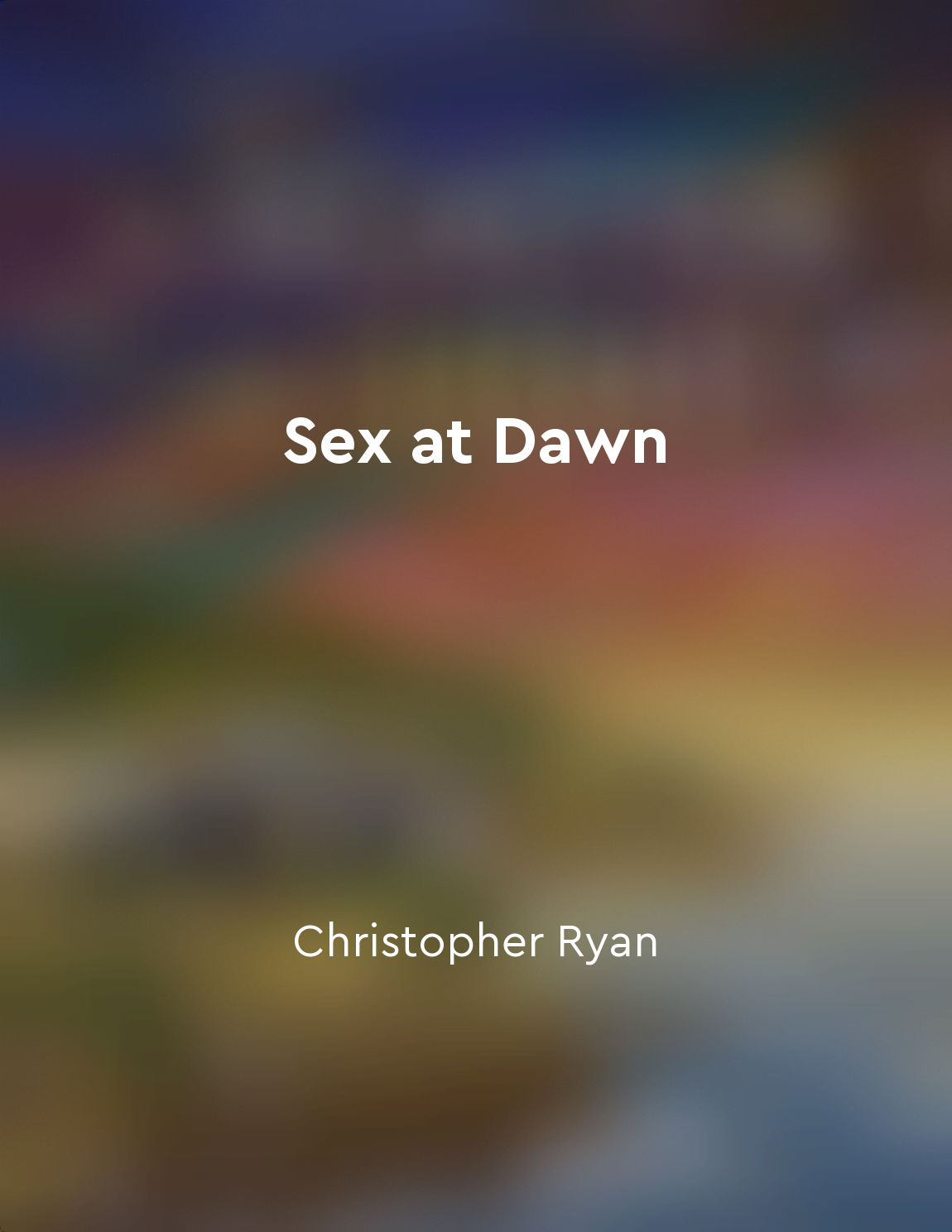Online dating preferences reflect deeper societal trends from "summary" of Dataclysm: Who We Are (When We Think No One’s Looking) by Christian Rudder
The patterns of who people are drawn to online are not just random blips on the digital radar. They are signals, noise, in the data that reveal our society's deeper currents. These currents flow in ways we might not consciously recognize, but they shape the landscape of our desires nonetheless. The preferences we express in the online dating realm are not isolated incidents of personal taste; they are reflections of broader social norms, beliefs, and biases. As we swipe and click through profiles, we are not just making individual choices based on individual preferences. We are navigating a sea of collective values, expectations, and stereotypes that have been ingrained in us by the culture we live in. Our choices are influenced by the images we see in the media, the stories we hear from our friends, and the messages we receive from society at large. These influences shape the way we perceive attractiveness, desirability, and compatibility. For example, the data shows that people tend to prefer partners who are similar to themselves in terms of race, age, and education level. This is not just a matter of personal preference; it reflects deeper societal trends around homophily, social stratification, and cultural capital. Similarly, the data reveals that certain groups are consistently perceived as more attractive or desirable than others. These perceptions are not random or arbitrary; they are shaped by centuries of historical, cultural, and economic forces that have privileged some groups over others.- Our online dating preferences serve as a mirror, reflecting back to us the values and norms that govern our society. They reveal the ways in which power, privilege, and prejudice operate in the realm of intimate relationships. By examining these preferences through a data-driven lens, we can uncover the hidden dynamics that shape our desires and challenge ourselves to question the assumptions and biases that underlie them. Ultimately, by understanding the deeper societal trends that influence our online dating choices, we can begin to unpack the complexities of attraction and connection in the digital age.
Similar Posts
The mind is a complex and adaptive system
The mind is a complex and adaptive system that is constantly changing and evolving in response to the environment. It is not a ...
Romantic love can lead to personal growth and selfdiscovery
Romantic love has the power to transform individuals in profound ways, allowing them to develop and discover their true selves....

Don't compare your relationship to others
Comparing your relationship to others is a dangerous game. It's tempting to look at other couples and wonder why your relations...
Gender biases are evident in search data
Gender biases are evident in search data. People may be more honest with their Google searches than they are with surveys or ev...
Women are bombarded with images and messages that fuel the beauty myth
In a culture that constantly bombards women with images and messages promoting a narrow definition of beauty, it is no wonder t...
Women are more inclined toward committed relationships
Women have a natural inclination towards committed relationships. This is because women are biologically wired to seek security...
Create agreements that work for all parties involved
When entering into any kind of relationship, it is essential to establish agreements that are mutually beneficial and respectfu...
Diversity and inclusion became societal goals
In the course of human history, a significant shift occurred in societal values as diversity and inclusion emerged as overarchi...
Cultural capital is a key driver of social mobility
Cultural capital, as defined by Bourdieu, refers to the cultural knowledge, skills, and habits that individuals possess. This f...

Sexual freedom can lead to societal harmony
In our exploration of human sexuality, it becomes apparent that sexual freedom plays a crucial role in shaping societal dynamic...

